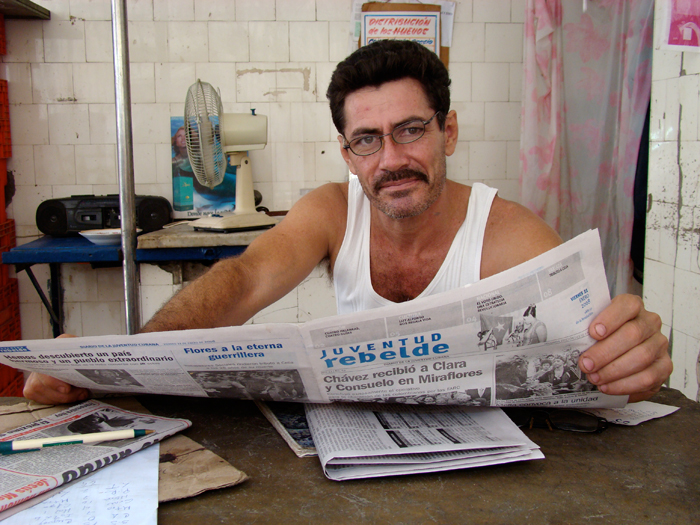In January 1959, Fidel Castro came to power after having toppled President Fulgencio Batista through an armed insurgency and a terrorist campaign on a national level. That same year Castro declared: “Where there is crime, there is no freedom of the press, where there is crime, what happens is hidden.” He also declared, on several occasions, emphatically that he was not a communist.
On May 14, 1960 the last autonomous newspaper, Prensa Libre, was shuttered. The previous day, the journalist Luis Aguilar León, in an opinion article entitled “The hour of unanimity”, had defended the right of El Diario de la Marina, considered the leading newspapers in Cuba at the time, to put into practice freedom of the press and opinion. Only three days before that El Diario de la Marina had been closed down.

The new regime could not afford freedom of the press. It wanted and needed a servile media to be able to implement a policy of state-backed terrorism, which was the only thing that would allow the island’s new rulers to remain in power for life and seize all the resources and assets of the nation.
To that end, the regime not only took over every form of mass media, but also gave journalists the label of “ideological workers.” From that moment, no one could be a journalist without professing, or pretending very well to profess, the communist ideology.
The Ideological Department of the Central Committee of the Communist Party is the entity that directs all the forms of mass media. Freedom of expression, although it is allowed in accordance with the provisions of the Constitution, is impossible to put into practice.
Despite this unflattering and rather hostile state of affairs, independent media emerged in 1994.
The prehistory of that press is in the prisons. For several decades thousands of Cubans were held in prison, serving long sentences for political reasons.
The means of communication for many of them with the outside world was done through small notes, which were smuggled out of the prisons with an extraordinary amount of care.
Those little scraps of paper reported the harsh, and in most cases dire, conditions they had to endure.
Already in the year referred to, small press agencies began to be born, mainly made up of people who had not received any journalistic training. Proving once again the axiom that journalists are born, not made.
The regime lost the monopoly of information abroad, which is a serious matter for a military-police state.
The crackdown on independent journalists began almost immediately. The Political Police, together with judges, prosecutors, and official media outlets, took active steps against the independent press. This reached its peak in March 2003, when over the course of what came to be known as the “Black Spring”, 26 journalists were sentenced to long prison terms.
After seven years, all 26 of them were released thanks to international solidarity. However, they all decided to go into exile. Yet, at no time since then has the independent journalism that became a national movement ever stopped.
The State continues to proceed, even during the current COVID-19 pandemic, in a very aggressive manner against journalists. Arbitrary arrests, raiding people’s homes, interrogations in disparate places, confiscation of equipment for their work, the harassment of family members, prohibitions against leaving the national territory, the blocking of web pages and a range of incomparable threats, are only some of the measures taken against these people, for whom the only thing they have done is exercise the right recognized in article 19 of the Universal Declaration of Human Rights.
Journalists can be sentenced to prison, among other causes, for the following reasons that are in force within the Penal Code:
Usurpation of legal capacity.
Disclosure of Fake News.
Enemy Propaganda.
Underground Printed Materials.

Leave a comment